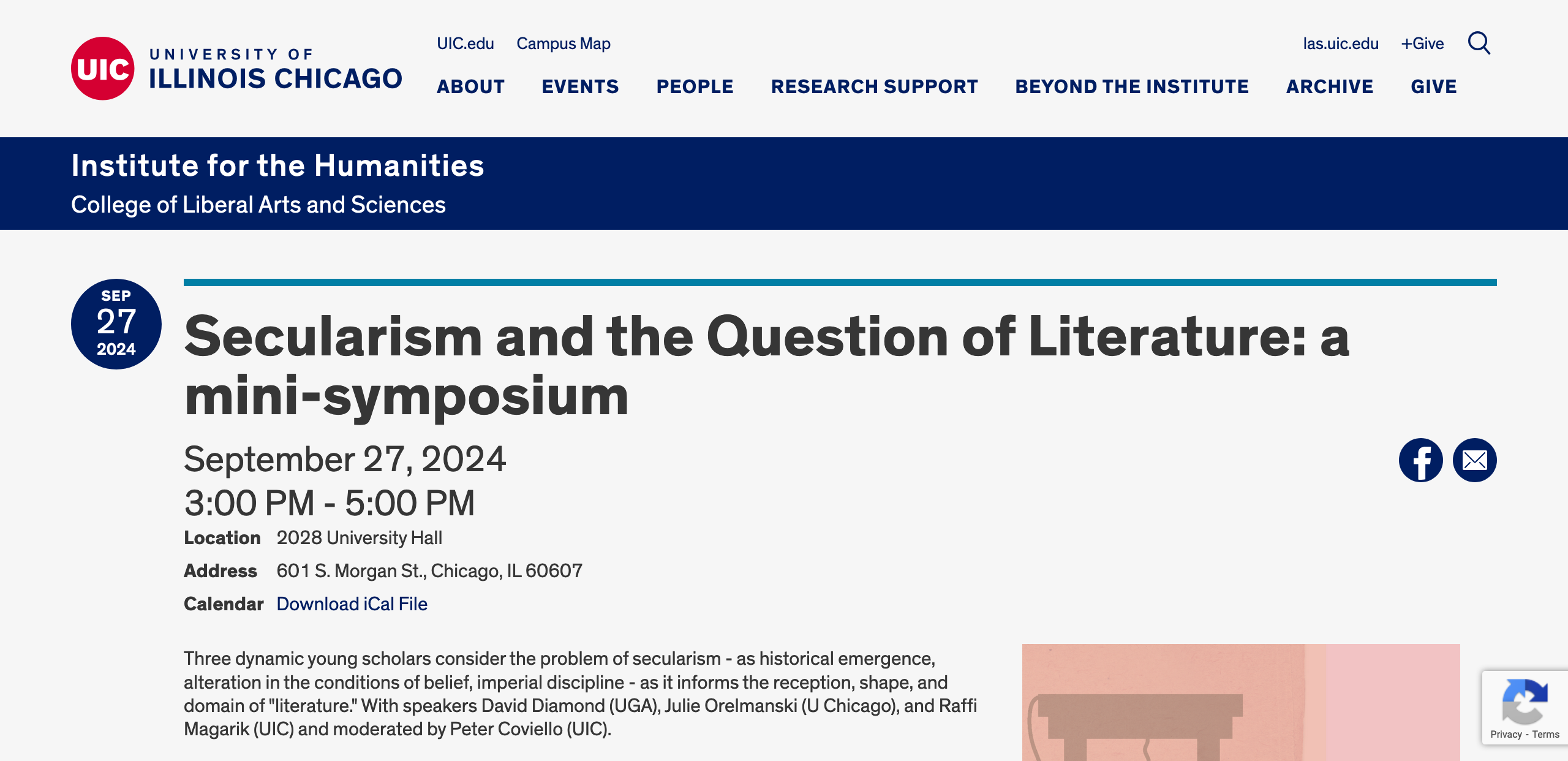I had an unexpected experience at a recent secularism and literature mini-symposium.
This event, which was moderated by the UIC English Department Head, included three other presenters, two local and one with some Chicago connection. The moderator offers initial observations, the presenters read papers aloud, and then the audience asked questions.
I am genuinely interested in functions for literature beyond literary studies journals and college English classrooms. I expected something about secularism and literature in the present tense. What I got unexpectedly intrigued and repulsed me.
I hadn’t even considered that secularism had historical antecedents, which embarrassed me. At the same time, I couldn’t comprehend how these performances could be relevant or useful.
Some of the details were too specific — I lack the requisite context — and the conventional methodology was as annoying as ever — I never understand how illustration can be evidence, at least of anything substantial enough to sustain such sweeping generalizations.
Nonetheless, I was grateful for the reminder that these topics, and perhaps all phenomena, have histories, which is one of the most important insights from my immersion in the humanities. This reminder I suspect is all the more important at a time when such perspectives are often collapsed beyond the point of being recognizable as such.
At the same time, I was surprised that these specialists hadn’t translated such esoteric observations for a more public audience.
This group included someone from psychiatry who was eager about cross-disciplinary connections and even an undergrad English major who confirmed her summary with the speakers. And who if not a tenured full English professor could the intended audience be?
And I was almost offended by the theatrics as if we had purchased tickets to a performance rather than attended something billed as a symposium, and not a colloquium.
I wish these presenters had distributed short lists of central ideas or controversial claims, or even juxtaposed these on the screen in the front of the seminar classroom. They could have described and defended these without reading anything on paper in much shorter amounts of time.
Then we could have a proper discussion or debate rather than spend ninety minutes or more listening to them go on and on. If I had wanted more, I could have read their recent publications, and in such an imaginary setting might have wanted to do so.
In this actual event, I ruminated about my undergraduate days at a public university aesthetically similar to this one. I too often had listened to English professors do what English professor do, and had wondered how quickly I could change my major and what else I could want to study more.
I also wondered what my own students think, and whether or to what extent I recreate the same experiences I had endured as an undergraduate. Or a conference attendee. Or a local if not institutional colleague.
But what do I know? And why do I care?

Leave a Reply